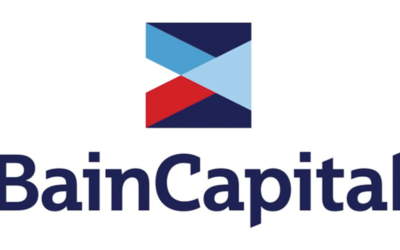Global banks stuck with $80bn in unappealing M&A financing debt are trying new tactics to find buyers.
In the case of the private-equity buyout of Citrix Systems Inc., they’re cutting the debt into smaller pieces to attract a wider pool of investors. Euro debt is being added to some financing packages, as in the case of ETC Group’s takeover.
The banks are adapting to rising rates and falling asset values, where investors’ risk appetite has seemingly vanished and money managers are bruised from bad bets elsewhere. Many of these M&A financing packages were put together months ago, when stocks were near all-time highs.
The banks leading Citrix, for example, had initially intended to sell US$7.05 billion of loans to help finance the deal. Instead, underwriters are considering holding onto a US$3.5 billion chunk and are selling a US$4.05 billion segment, of which US$1 billion has already been placed with private-credit lenders, Bloomberg previously reported.
Get the week’s top news delivered directly to your inbox – Sign up for our newsletter
Banks are also looking at adding a US$500 million-equivalent leveraged loan denominated in euros. Depending on demand for the loans they’re selling, bankers may also be able to decrease the amount of debt they’ll need to hold to US$2.5 billion or even less.
With those shifts, the banks can decrease their original US$4 billion secured bond commitment down to US$3 billion. They have also adjusted the original US$3.95 billion unsecured bond portion into a second-lien loan.
Citrix isn’t the only transaction being changed. Tweaks are under consideration for deals up and down the industry, including CVC’s takeover of the Unilever tea business and Bain Capital’s buyout of French computer services company Inetum SA.
“In current market conditions, we have seen a number of deals where underwriters have altered the capital structure or terms to maximize liquidity,” said Nicholas Clark, a partner and co-head of the global leveraged finance group at law firm Allen & Overy. “Underwriters have sought to tighten terms up-front, in an attempt to address likely investor areas of focus on the docs.”
However, there’s often a limit to how much banks are able to change. They’re still bound by underwriting agreements and have to renegotiate any new terms with the private-equity firms.
In the case of the Wm Morrison Supermarkets buyout, banks sought permission to convert a portion of the term loan into dollars to attract a wider investor base, but Clayton, Dubilier & Rice — the private-equity buyer of the retail chain — didn’t approve the request, according to people familiar with the matter, who asked not to be identified.
Some of the Morrison loans have been sold to Asian and commercial banks, as well as Pimco and other investors. Despite such efforts, the banks involved in this deal remain stuck with more than £1 billion (US$1.18 billion) in financing that they’ve yet to unload, showing the additional costs of M&A deals done in a market shunning risk.
And if there’s enough demand, the changes aren’t always needed. A group of banks that led the financing to help support CD&R’s partial acquisition of Kindred At Home Hospice looked at holding onto a US$400 million loan themselves to reduce the amount of debt they had to sell to investors. But the banks found there was enough demand to sell the entire US$1.6 billion of first-lien loans to institutional investors when it priced in early August.
Source: BNN Bloomberg
Can’t stop reading? Read more
Invesco makes metaverse fund a virtual reality
India’s Alteria Capital Advisors is in talks with investors to raise up to $438m for its third…
Bain Capital and Advent plan to exit Quest Global at $3bn valuation
Private equity firms Bain Capital and Advent International are looking to exit Quest Global…
Banks slice and dice $80bn in M&A debt that no one wants
Global banks stuck with $80bn in unappealing M&A financing debt are trying new tactics to find…
The post Banks slice and dice $80bn in M&A debt that no one wants appeared first on Private Equity Insights.






